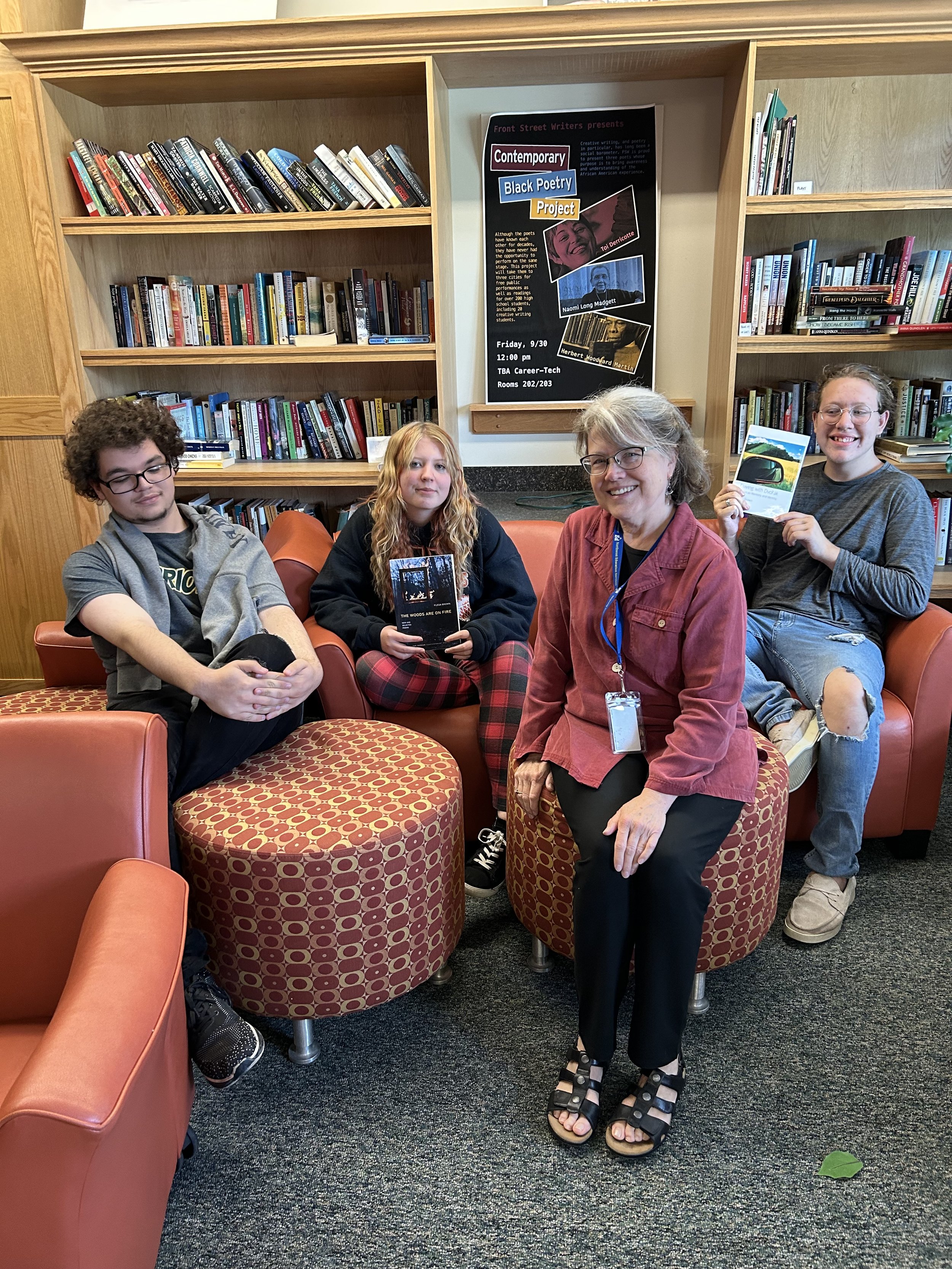Monday I was invited by my friend, the amazing teacher and poet Teresa Scollon, to visit her classes and talk poetry. They meet in the Career Tech building in Traverse City—non-traditional students. I love them. They’re interesting. They like poetry.
When I say Teresa’s an amazing teacher, I mean she honors each student’s particular personality and encourages them to do the same. There’s a sense of quiet equality, meaning you have to pay attention to realize which person in the room is the teacher. There’s a whiteboard where she records quotes from students. The the only one I remember is, “trained attack plankton.” There’s that reward for saying something interesting.
The three members of the afternoon class, with Teresa. For some reason, they decided to hold up two of my books. :)
When I say “talk poetry,” I didn’t have much of an agenda. They asked questions, we looked at some poems of mine, and then I gave them some suggestions to get started on a new poem of their own. I’ve done this a thousand times and I am always amazed by what happens, especially among the “non-traditional” students. Poetry is non-traditional. If it doesn’t break molds, if it doesn’t feel like the first time in the history of the world these words have been spoken, it’s not doing its job.
When I say I’ve done this a thousand times, I mean I want them to notice words. This time I asked them to find words that interested them in the packet of poems I brought. Then use two unlike words/images in the same first line of a poem. Then do the same in the second line, new unlike words/images. Then after that, see where the two lines might be going together. This may sound formulaic and silly, but when two unlike things bump shoulders, they’re likely to send off a spark.
The conflagration of our world, of our own country is made of just this—sparks thrown off by unlike things/people bumping into each other. The eyes fly open. Surprise! A poem must have a surprise. We must get used to surprises. No need to be alarmed. Every moment, when we really look, is a surprise.
Poetry isn’t going to “save the world,” but it will do something good. Buddhists vow to “save all beings.” That can’t literally be done, of course. And what does “save” mean? The Buddhist teacher Hui-neng offers a response: You are saving them in your own mind. You’re cultivating your own aspiration for wisdom and compassion, and your determination to work for the benefit of all sentient beings.
You’re trying to write honest poems. You’re trying to get to the truth under the cliché. You want the poem to be wise. You’re trying to see the surprise in life. When you do this well, your reader is awakened in at least some small way. So you as a poet are working for the benefit of all beings. It’s a noble occupation. You’re a priest. A monk. No joke.
So, the classes began some poems, one class with about 20 people, the other with three. These are students who are bussed in from their schools to this central location for their creative writing class. One student began with the word “amputate.” He was thinking of soldiers returning from Afghanistan, coming to a store in his wheelchair. Then, he went the opposite direction with the word, thinking of “to remove” and thought of picking flowers. You can see how the two might make an interesting poem. Another student chose a gecko and beast. Another opposite. There’s not room here to give you the work they were doing, but I found it all exciting.
If you’re anywhere near Northport, I’d love for you to join me and the wonderful poet, Mike Delp, at 4:00 Saturday for a reading at Dog Ears Books.


